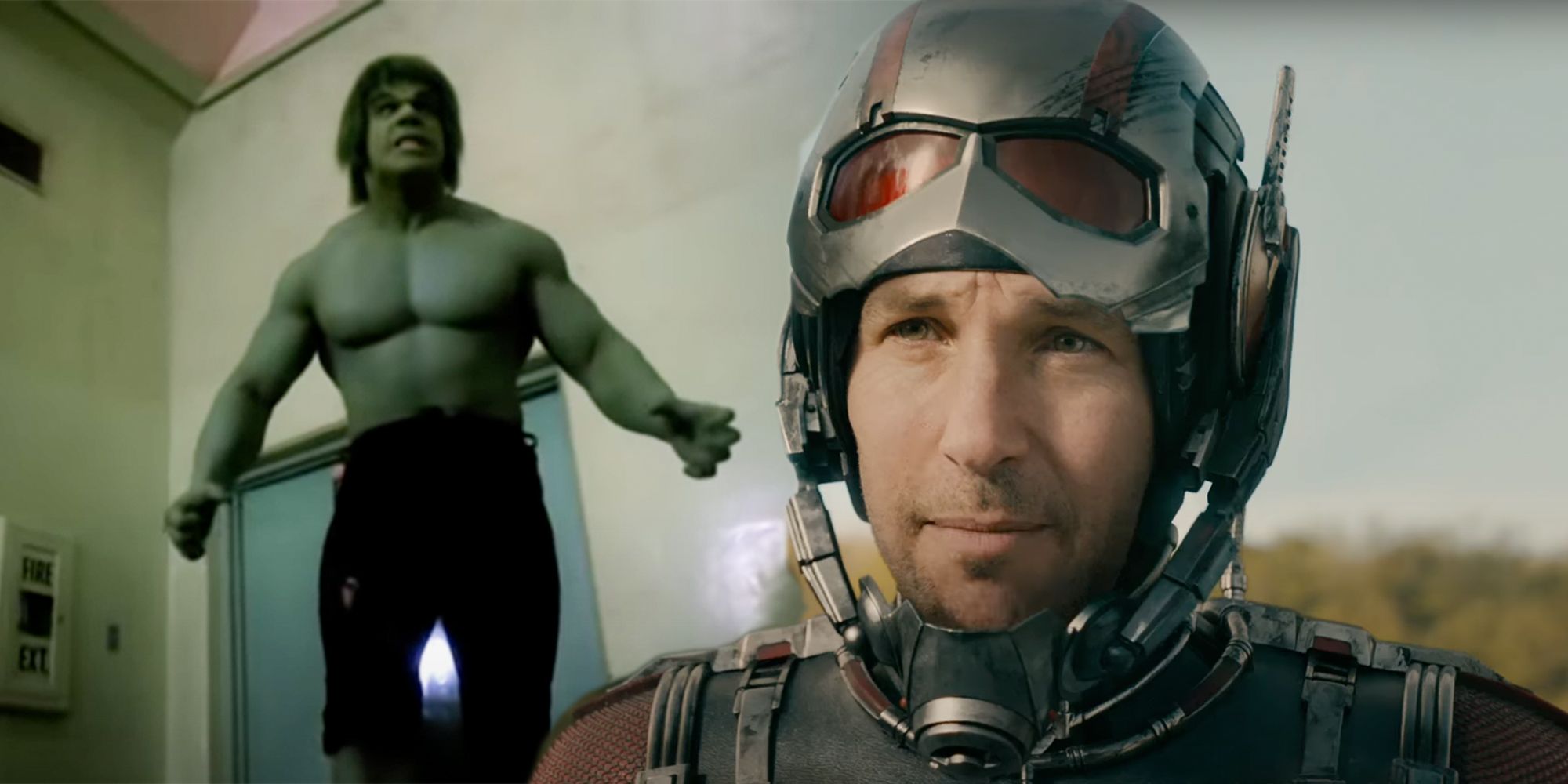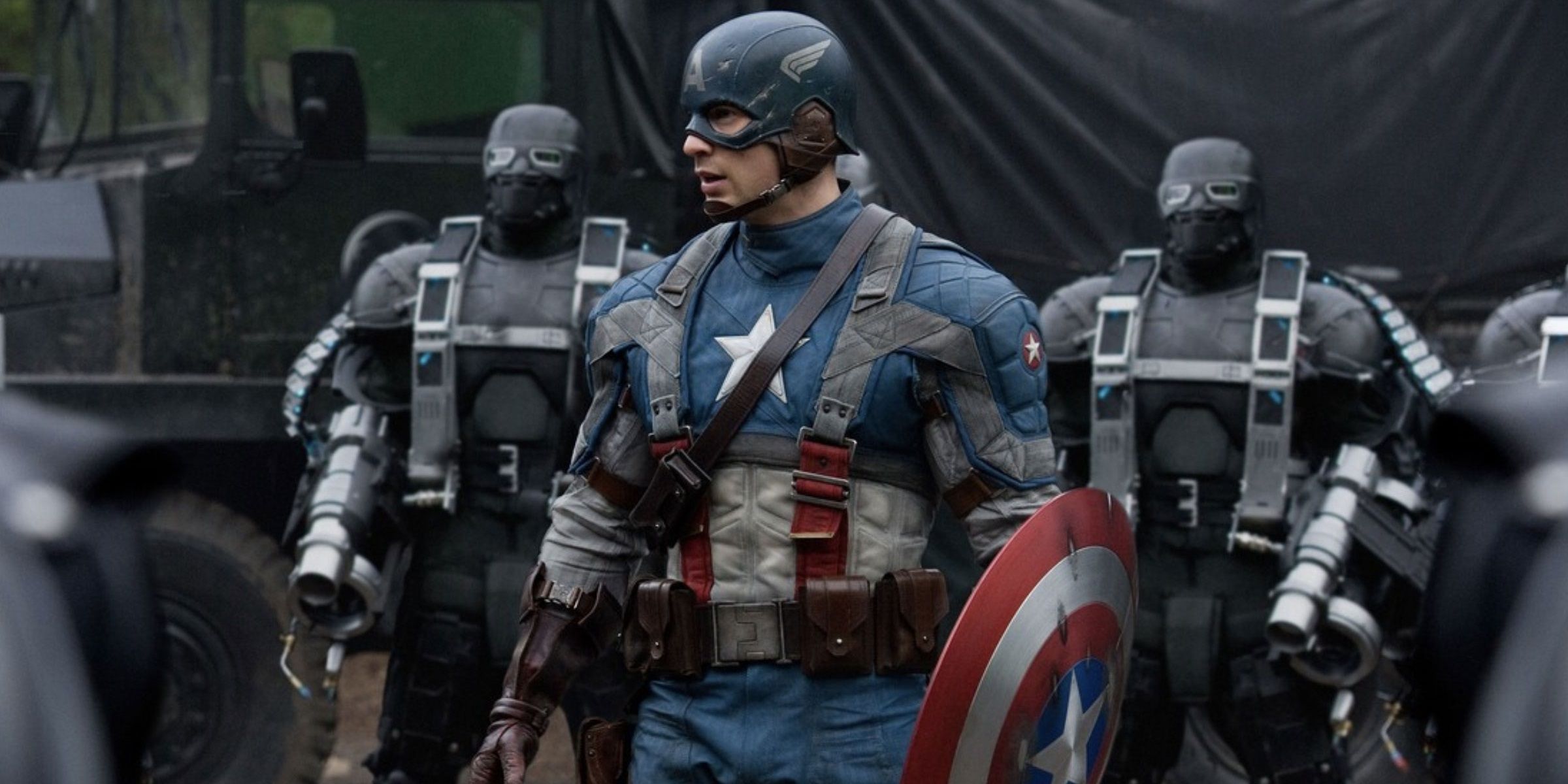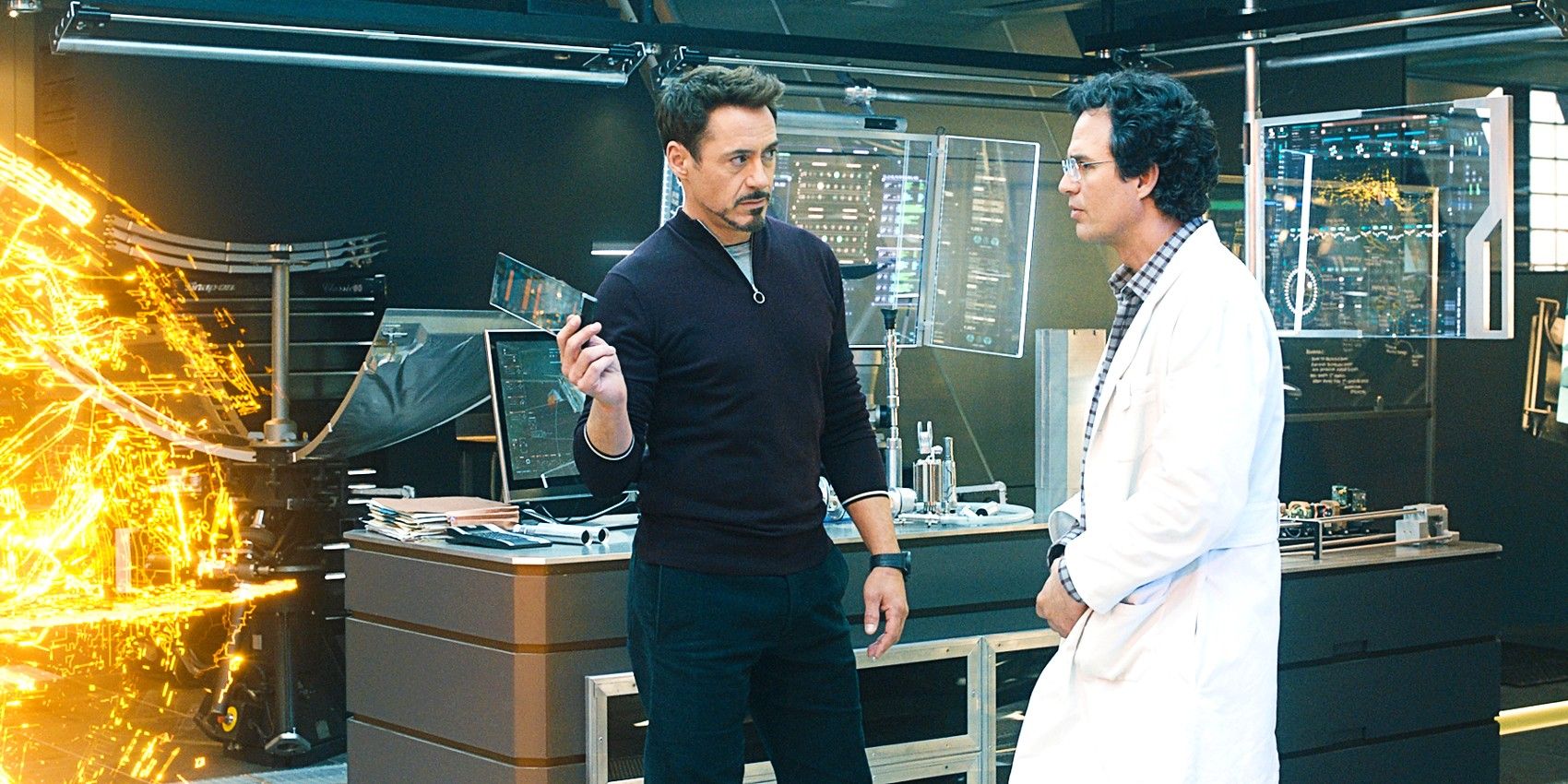The Nacelle Company and Vice TV’s Icons Unearthed: Marvel continues the Icons Unearthed series with a deep dive into the biggest film phenomenon of the modern era. The series begins with the origins of the Marvel comic book company and the surprising twists and turns that brought it to the brink of 2008’s Iron Man, chronicling key moments that have since shaped the MCU. Icons Unearthed: Marvel also benefits from interviews with a number of key players, including the former head of Marvel TV Jeph Loeb, Phil Coulson actor Clark Gregg, and Hulk icon Lou Ferrigno.
Icons Unearthed: Marvel was directed by Brian Volk-Weiss, who founded The Nacelle Company. Volk-Weiss is behind a number of other well-known deep dive shows, including the other Icons Unearthed seasons (such as one exploring the Fast and Furious franchise), and the Netflix docuseries The Toys That Made Us and The Movies That Made Us. Icons Unearthed: Marvel is one of the first documentary productions to explore the MCU, and thanks to the huge nature of Marvel’s film empire, boasts two more episodes than previous Icons Unearthed seasons.
Volk-Weiss spoke with Screen Rant about his MCU takeaways and what he learned from creating Icons Unearthed: Marvel. Note: This interview has been lightly edited for length and clarity.
Brian Volk-Weiss on Icons Unearthed: Marvel
Screen Rant: I've seen the first episode and loved it. What movie do you go up to in the MCU?
Brian Volk-Weiss: We go up to the first Ant-Man. Unlike all the other seasons, this one is eight episodes; all the others are six. This is an extra-special, super-stuffed season.
Is it hard to do a docuseries on something that is still as alive as the MCU?
Brian Volk-Weiss: It's a great question. It really depends from IP to IP. I won't be specific, but let me just say there was another season of the show that's already come out that was much harder than this one in terms of getting people to talk to us. In fact, it was the hardest we've ever had by a million miles.
Marvel wasn't bad. It wasn't bad at all. We got great people, and not only did we get great people, but we also got really, really good information. Dare I say it, maybe a little gossip. We got some good stuff. There are going to be a lot of surprised people out there. Unlike Star Wars and The Simpsons to a certain degree, Marvel has not really been covered. That's kind of the whole point of Icons Unearthed, but it's really shocking to me. You'd be hard-pressed to find a documentary about the MCU. Very hard-pressed.
I think a general perception of Marvel is that Kevin Feige showed up, and it's been smooth sailing since then. Did you uncover any bumps in the road that we don't know about yet?
Brian Volk-Weiss: I would say the outcome has been smooth sailing, for the most part. The process of making these movies, with rare exception, has been anything but smooth. It is almost incomprehensible that they have been able to pull off what they pulled off, and I'll tell you what I mean by that. They have had close to two decades of movies premiering number one, and - with the possible only exception of Eternals, which I would argue I don't even think is an exception - every single movie has been at the very least profitable. Most of them have been staggeringly profitable.
There is no comp. The closest thing I could find to a comp was James Bond, and A, James Bond in over half a century has made fewer movies. B, they have had bombs that lost money. The Timothy Dalton era - they didn't make a Bond movie for ten years after that. The fact that Marvel has been able to put out two or three movies a year for over fifteen years without losing money, and making movies six years after they set up the plot? It's never been done.
I think one of the problems Marvel has is that it is impossible to judge, because there are no comps. When you're trying to sell a house, how do they figure out what your house is worth? They look at all the houses around your house, and that's how they do it. You can't really do that with Marvel; it's really crazy. Can I tell you one story that sums that up perfectly?
Please.
Brian Volk-Weiss: When I was a kid I went to a summer camp in Massachusetts. When I was in camp, I would be under the blanket with a flashlight, usually reading comics. I could argue my research began when I was eight or nine, but when this season was greenlit, it was like, "Yes, I'm a Marvel fan my whole life. Yes, I think I can talk about this backwards in my sleep. But I still should do some research." Thank God I did, because I didn't completely understand what I thought I did about it.
When I direct I'm always looking for what I call the spinal column of a show, or a season, or whatever you want to call it. During this research, I found the spinal column of the season. And to me, I truly believe this to be the craziest thing done in the history of the entertainment business on planet Earth ever. Did you know that while they were shooting The Avengers, Captain America was in the second week of shooting, and Thor premiered two weeks before they wrapped?
Whoa.
Brian Volk-Weiss: Let that sink in. There are five leads in that movie; nobody knew if two of them would work. The other thing that I also truly believe Marvel doesn't get enough credit for is that for those movies in particular, especially Thor... these are really, really, really, really weird stories. Now they seem normal, now they seem cool, and everybody gets it, but Thor is insane. The amount of times I tried reading Thor and quit... I never finished Thor, I never got into Thor, I never liked Thor - until the first MCU movie.
With Captain America, there was a way to make a safer film. They didn't have to have it in the 40s and 50s. These are weird movies, or at least weird stories. They're actually not weird movies, they're very normal, good movies, but they are based on extremely strange characters in extremely strange worlds, and it shouldn't work. The fact that they doubled down, and then tripled down, and then quadrupled down, so that they're sitting here spending a quarter billion dollars making The Avengers not even knowing if two fifths of their leads work. They recast The Hulk... it shouldn't have worked. And the fact that CFOs and CEOs and board members are greenlighting this and signing off on this plan? That's insane.
Why do you think they were willing to take that risk? Was it Kevin Feige being super persuasive?
Brian Volk-Weiss: Here's the way I would describe it. View Kevin Feige as being a pilot in the Air Force. He's the best pilot, there's nobody better in the Air Force to complete the mission, but he's not the head of the Air Force. The answer to your question, at that time, was Ike Perlmutter and Avi Arad. Perlmutter was an entrepreneur, he was an independent guy, and he was a badass. We've heard some pretty insane stories about him, to put it mildly. Some of the craziest things I've ever heard about anyone, I've heard about him. That being said, he had the confidence. He knew what he was doing, he'd been doing it forever, he was already rich, and he's the guy who got the money through Merrill Lynch.
One of the huge things is the importance of Blade to everything that happened with the MCU. First of all - and it's painful for me to say this, but it's true - even more so than Batman '89, Blade showed how to make a modern superhero film. It figured out, "How do you take this crazy wardrobe - that's straps and strings - that works in a comic book but would never work in reality, and how do you fix that? How do you take these kind of cheesy lines and make them sound cool? How do you take the thought bubbles and make a movie without thought bubbles were nobody wants to hear them thinking?" They figured it out. That's the first thing Blade did. The other thing Blade did, is it made about $200 million all-in, minimum. It actually may have made $250 to $300 with all the ancillary, and cable, and whatever.
Marvel got $25,000. That's it. Ike Perlmutter and Avi Arad were a huge part of this, to put it mildly. They had the confidence to go to Merrill Lynch and get a half billion dollar loan.
You also talk to Jeph Loeb who did Marvel Netflix, and Clark Gregg who did Agents of SHIELD. When all of that came out, they were supposed to be part of the MCU, and they got abandoned in a way. I'm curious if you dove into that, and if you detected any feelings on the subject from the people involved?
Brian Volk-Weiss: Nobody said this to me, but reading in between the lines, I do not believe Agents of SHIELD has been permanently abandoned. And I do believe they are working aggressively, and you could see this at work in She-Hulk, one of the best Marvel anything ever made. They're starting to bring the characters from the Netflix era into the MCU. Again, nobody does this. That's insane.
They're not happy with the deal they made with Netflix. Usually, when a company and an executive are unhappy about a deal, they don't try and replicate it and keep it going. The fact that they're like embracing something they're not happy about, it's crazy, but they just do the right thing every time. I don't work for Marvel, I am literally not wearing a Marvel T-shirt at the moment, but I truly don't think they get enough credit for what they do and what they've done. Even as successful as they've been.
Outside of Iron Man, is there an early project that you think laid the groundwork for the MCU? Maybe it's Blade, going off of what you said earlier
Brian Volk-Weiss: It's two movies, one of which is Marvel, one of which is not. It is absolutely, positively, Blade II, which I would argue is exponentially superior to Blade. The only difference is, obviously, and this is a real variable, you can't have a two without a successful one.
I'm not throwing shade at the first movie, but Blade II is a work of genius. It holds up. It is exciting. It is fun. That's the other thing Blade II did that Blade one didn't do; Blade II is hysterical. There's so much humor, and I also think humor is a massive reason why the MCU prevailed. They poke fun at themselves; they made fun of themselves. They acted like real people that just happened to have superpowers. So that's the first film.
The other film gets no credit, but if you watch Iron Man, there are scenes in Iron Man that are shot for shot, within reason, taken from Robocop. It is so obvious. If you watch Robocop and then you watch Iron Man, and you keep Robocop in mind when you're watching the rest of the MCU... that's the movie. The scene where Iron Man is in Afghanistan? That is literally the City Hall scene in Robocop. It's not subtle. It is the furthest thing from subtle.
About Icons Unearthed: Marvel
Icons Unearthed is back for its fourth season, this time looking deep into the history and evolution of the biggest film phenomenon of the modern era. Using interviews from key players, rare project footage, and more, Icons Unearthed: Marvel chronicles the early days of Marvel Comics and the rise of the MCU. Icons Unearthed: Marvel continues the Icons Unearthed trend of examining some of the best-known and best-loved franchises of all time, with previous entries covering Star Wars, The Simpsons, and the Fast & Furious franchise.
Icons Unearthed: Marvel airs on Tuesdays on Vice TV.



